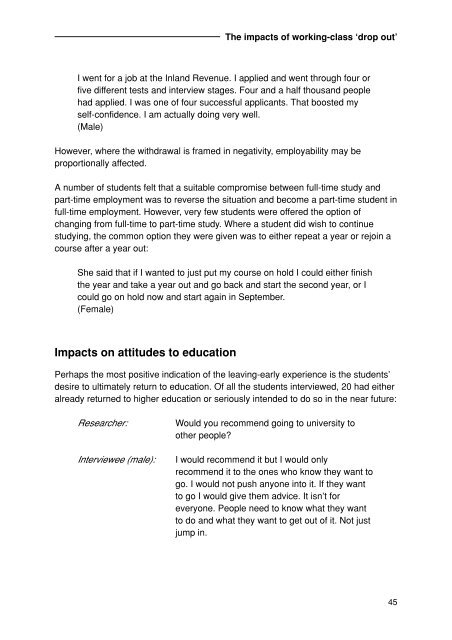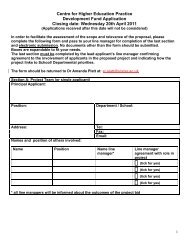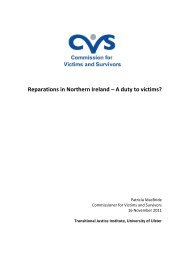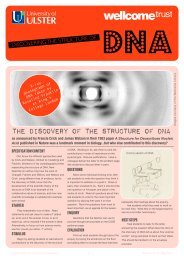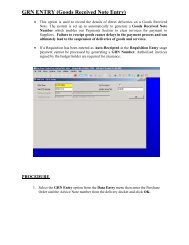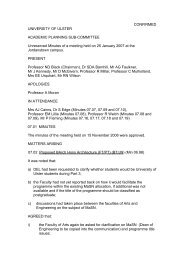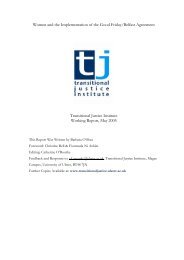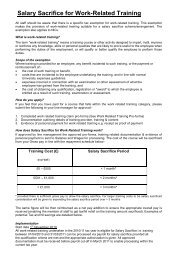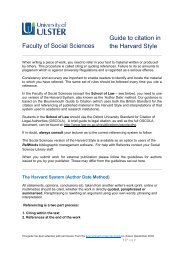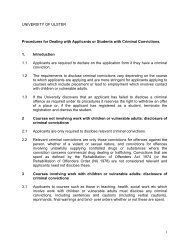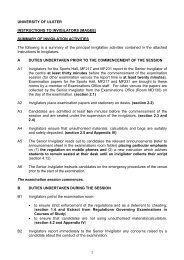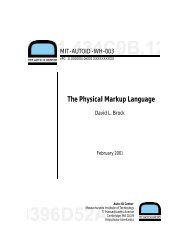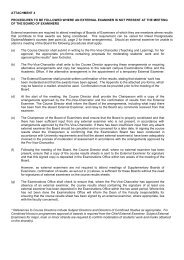From life crisis to lifelong learning: Rethinking working-class 'drop out'
From life crisis to lifelong learning: Rethinking working-class 'drop out'
From life crisis to lifelong learning: Rethinking working-class 'drop out'
Create successful ePaper yourself
Turn your PDF publications into a flip-book with our unique Google optimized e-Paper software.
The impacts of <strong>working</strong>-<strong>class</strong> ‘drop out’<br />
I went for a job at the Inland Revenue. I applied and went through four or<br />
five different tests and interview stages. Four and a half thousand people<br />
had applied. I was one of four successful applicants. That boosted my<br />
self-confidence. I am actually doing very well.<br />
(Male)<br />
However, where the withdrawal is framed in negativity, employability may be<br />
proportionally affected.<br />
A number of students felt that a suitable compromise between full-time study and<br />
part-time employment was <strong>to</strong> reverse the situation and become a part-time student in<br />
full-time employment. However, very few students were offered the option of<br />
changing from full-time <strong>to</strong> part-time study. Where a student did wish <strong>to</strong> continue<br />
studying, the common option they were given was <strong>to</strong> either repeat a year or rejoin a<br />
course after a year out:<br />
She said that if I wanted <strong>to</strong> just put my course on hold I could either finish<br />
the year and take a year out and go back and start the second year, or I<br />
could go on hold now and start again in September.<br />
(Female)<br />
Impacts on attitudes <strong>to</strong> education<br />
Perhaps the most positive indication of the leaving-early experience is the students’<br />
desire <strong>to</strong> ultimately return <strong>to</strong> education. Of all the students interviewed, 20 had either<br />
already returned <strong>to</strong> higher education or seriously intended <strong>to</strong> do so in the near future:<br />
Researcher: Would you recommend going <strong>to</strong> university <strong>to</strong><br />
other people?<br />
Interviewee (male): I would recommend it but I would only<br />
recommend it <strong>to</strong> the ones who know they want <strong>to</strong><br />
go. I would not push anyone in<strong>to</strong> it. If they want<br />
<strong>to</strong> go I would give them advice. It isn’t for<br />
everyone. People need <strong>to</strong> know what they want<br />
<strong>to</strong> do and what they want <strong>to</strong> get out of it. Not just<br />
jump in.<br />
45


